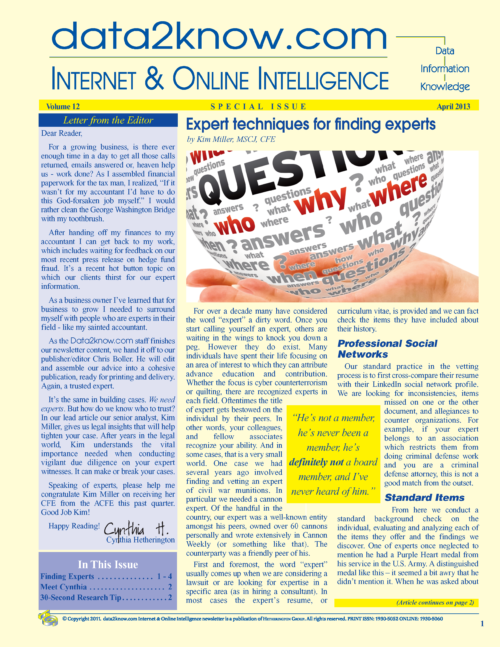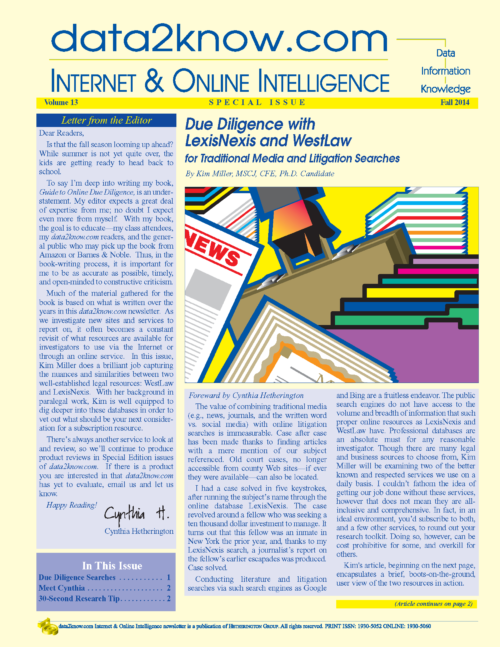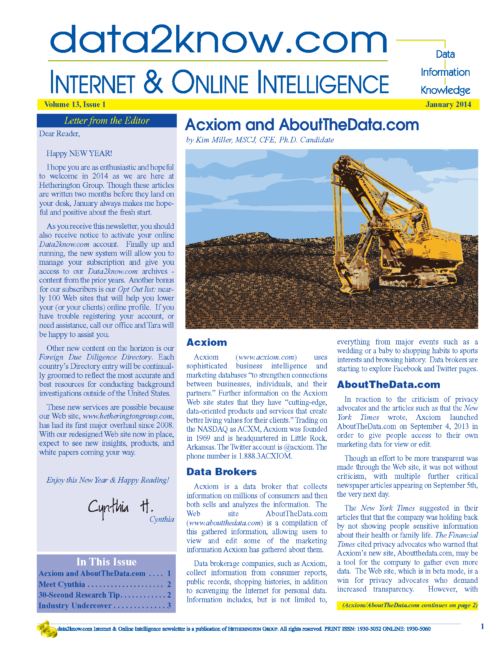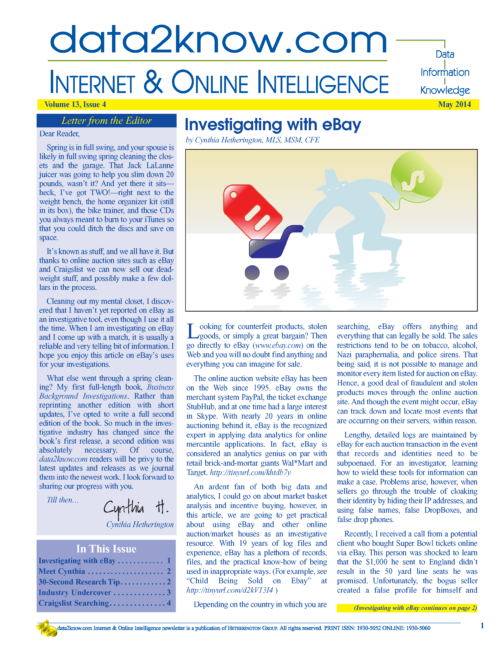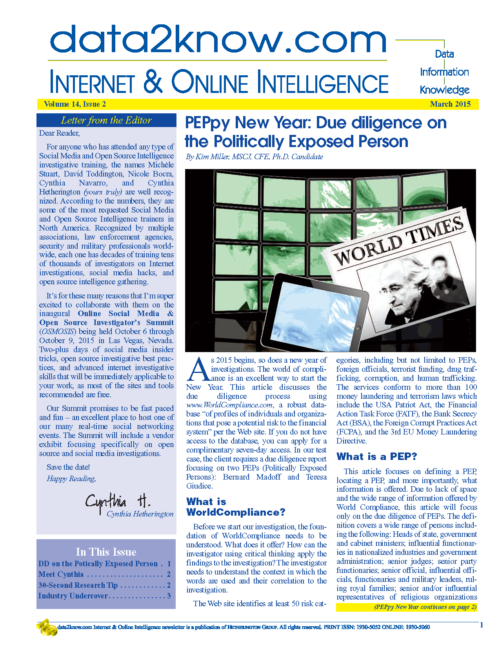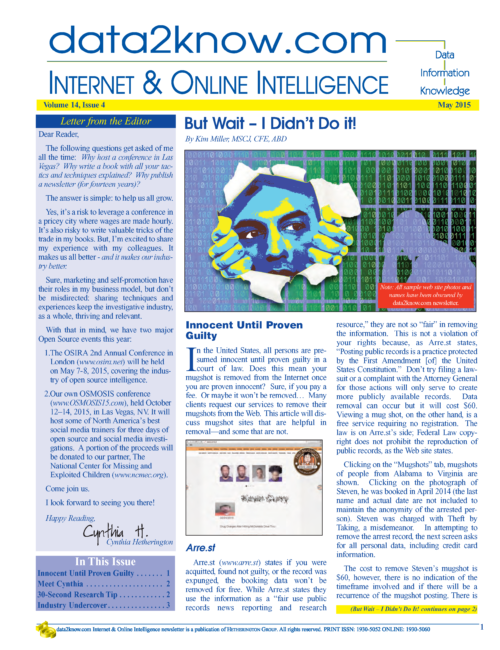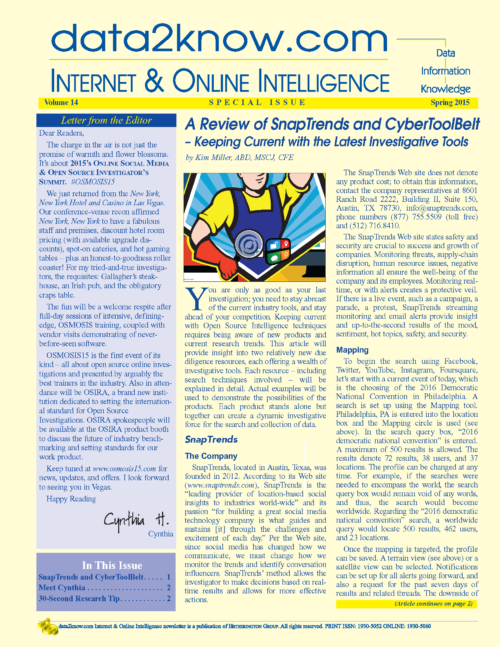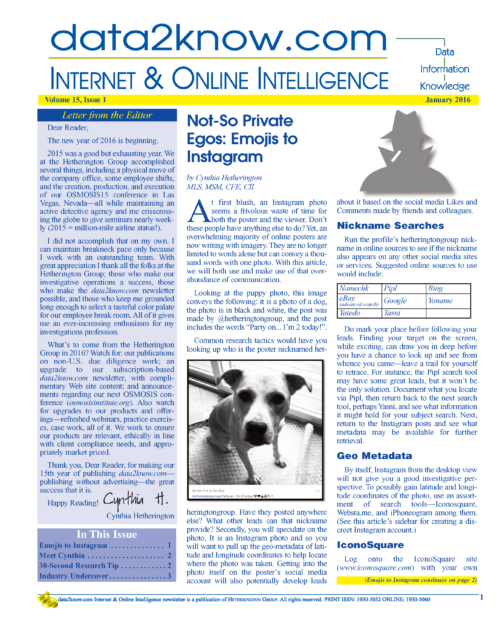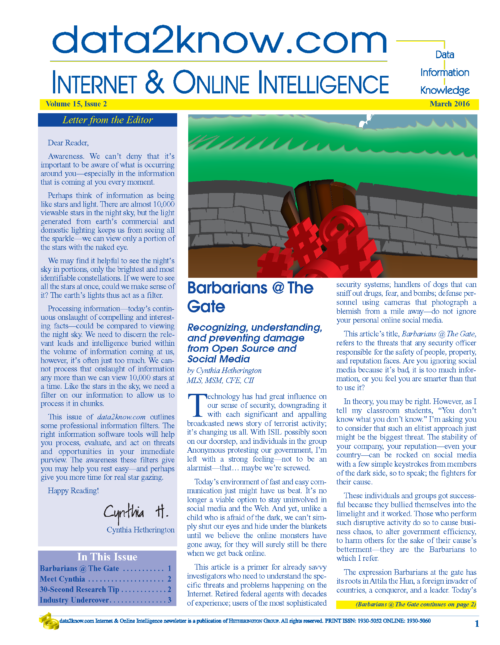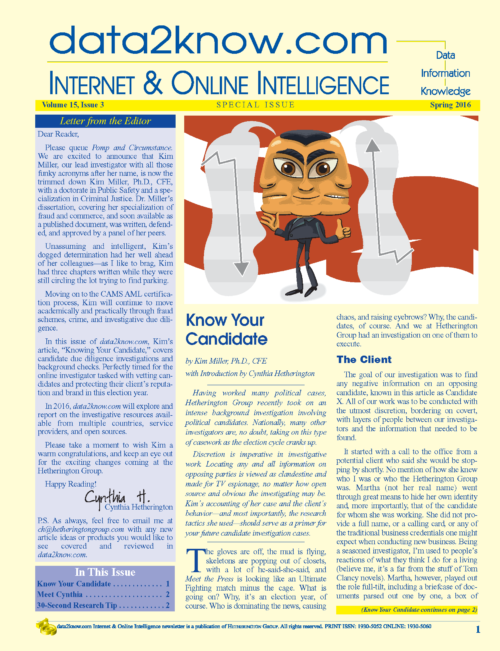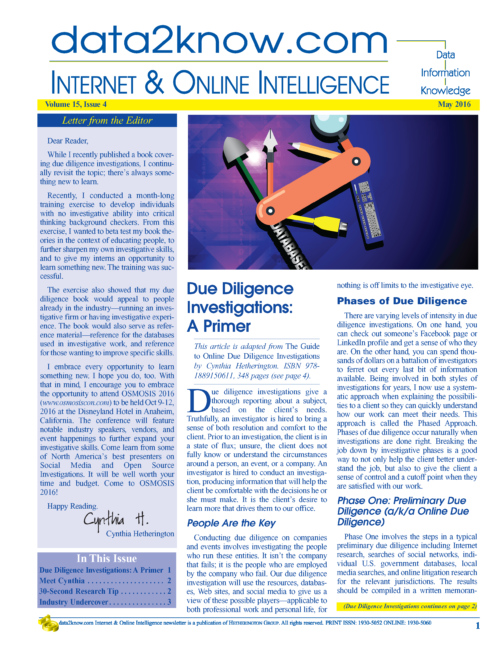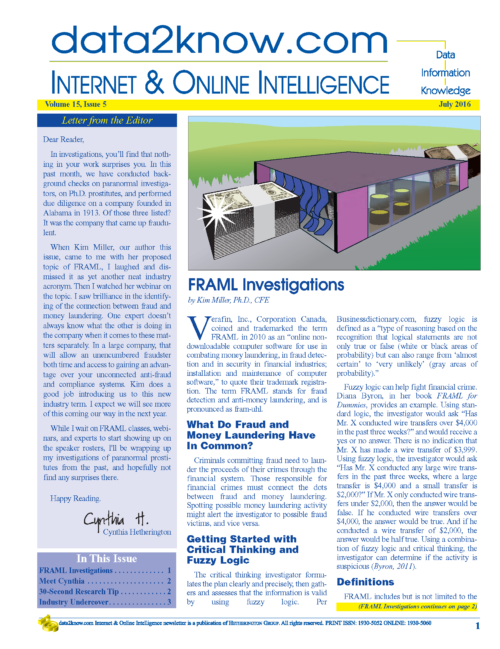-
Due Diligence with LexisNexis and WestLaw
The value of combining traditional media (e.g., news, journals, and the written word vs. social media) with online litigation searches is immeasurable. Case after case has been made thanks to finding articles with a mere mention of our subject referenced. Old court cases, no longer accessible from county Web sites—if ever they were available—can also be located. -
Data2Know Vol. 13, No. 1
$15.00Acxiom and AboutTheData.com
Acxiom uses sophisticated business intelligence and marketing databases "to strengthen connections between businesses, individuals, and their partners." Further information on the Acxiom Web site states that they have "cutting-edge, data-oriented products and services that create better living values for their clients" -
Data2Know Vol. 13, No. 4
$15.00Investigating with eBay
Looking for counterfeit products, stolen good, or simply a great bargain? We explore the intricacies and avenues for utilizing the veteran Web site, and other auction sites, to find leads and makes cases in our online investigations. This issue also covers the latest social networks, media, medical and business resources for your due diligence. -
Data2Know Vol. 14, No. 2
$15.00Due Diligence on the Politically Exposed Person
This article discusses the due diligence process using www.WorldCompliance.com, a robust database" of profiles of individuals and organizations that pose a potential risk to the financial system" per the Web site. -
Data2Know Vol. 14, No. 4
$15.00But Wait - I Didn't Do It!
In the United States, all persons are presumed innocent until proven guilty in a court of law. Does this mean your mugshot is removed from the Internet once you are proven innocent? Sure, if you pay a fee. Or maybe it won't be removed... -
A Review of SnapTrends and CyberToolbelt
You are only as good as your last investigation; you need to stay abreast of the current industry tools, and stay ahead of your competition. Keeping current with Open Source Intelligence techniques requires being aware of new products and current research trends. -
Data2Know Vol. 15, No. 1
$15.00Not-so private egos: Emojis to Instagram
An overwhelming majority of online posters are now writing with imagery. They are no longer limited to words alone but can convey a thousand words with one photo. With this article, we will both use and make use of that overabundance of communication. -
Data2Know Vol. 15, No. 2
$15.00Barbarians @ The Gate
This article’s title, Barbarians @ The Gate, refers to the threats that any security officer responsible for the safety of people, property, and reputation faces. Are you ignoring social media because it’s bad, it is too much information, or you feel you are smarter than that to use it? -
Data2Know Vol. 15, No. 3
$15.00Know Your Candidate
Discretion is imperative in investigative work. Locating any and all information on opposing parties is viewed as clandestine and made for TV espionage, no matter how open source and obvious the investigating may be. Kim’s accounting of her case and the client’s behavior—and most importantly, the research tactics she used—should serve as a primer for your future candidate investigation cases. -
Data2Know Vol. 15, No. 4
$15.00Due Diligence Investigations: A Primer
Due diligence investigations give a thorough reporting about a subject, based on the client’s needs. Truthfully, an investigator is hired to bring a sense of both resolution and comfort to the client. Prior to an investigation, the client is in a state of flux; unsure, the client does not fully know or understand the circumstances around a person, an event, or a company. An investigator is hired to conduct an investigation, producing information that will help the client be comfortable with the decisions he or she must make. It is the client’s desire to learn more that drives them to our office. -
Data2Know Vol. 15, No. 5
$15.00FRAML Investigations
The term FRAML stands for fraud detection and anti-money laundering. Criminals committing fraud need to launder the proceeds of their crimes through the financial system. Those responsible for financial crimes must connect the dots between fraud and money laundering. Spotting possible money laundering activity might alert the investigator to possible fraud victims, and vice versa.

